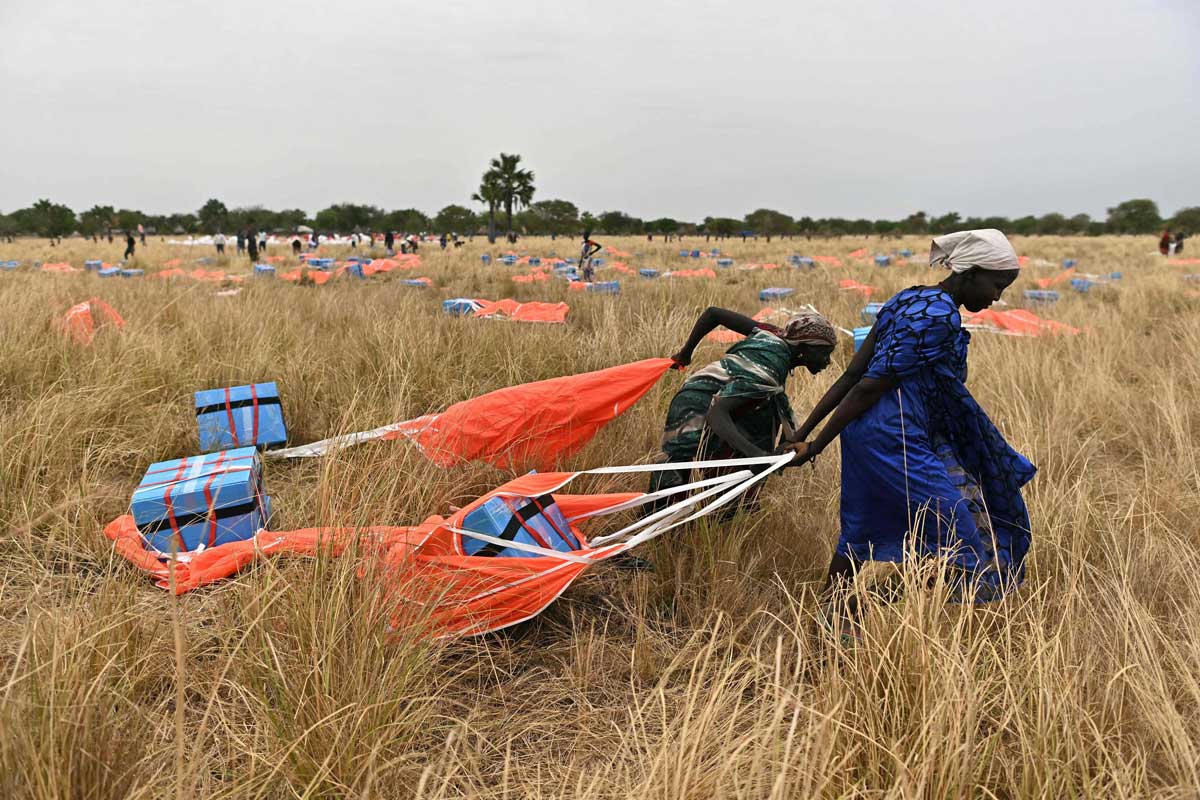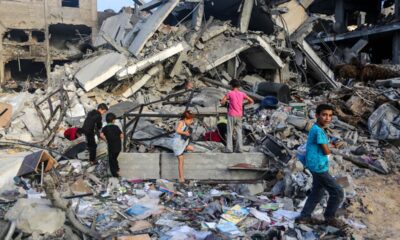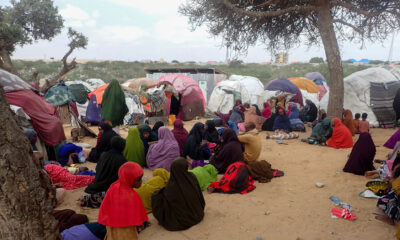World News
One year on, how war is pushing Sudan towards famine

By Nita Bhalla
www.context.news
What’s the context?
After 12 months of conflict in Sudan, five million people face the risk of famine in one of the world’s most acute forgotten crises
More than half of Sudan’s population is in need of aid
Sudan has the largest number of displaced people globally
Five million people face famine in coming months
NAIROBI – In just one year, Sudan has been brought to its knees: thousands of people have been killed, millions have lost everything they own and with critical infrastructure reduced to rubble, five million people are now on the brink of famine.
Aid agencies accuse the warring factions of using food as a weapon of war and are calling on the international community to do more to help the millions caught up in one of the world’s most acute humanitarian crises, and one of the least heeded.
Here’s what you need to know about the conflict, how it has affected people and why a famine is now looming.
What triggered the war?
Fighting between the Sudanese army and the country’s main paramilitary group, the Rapid Support Forces (RSF), began on April 15 last year.
The army backs General Abdel Fattah al-Burhan, the de facto ruler, while the RSF supports his former deputy, General Mohamed Hamdan Dagalo, known as Hemedti.
Tensions arose between the two sides over disagreements on transitioning to civilian rule after the overthrow of long-time autocratic ruler Omar al-Bashir in a popular uprising in 2019.
Areas of contention include integrating the RSF into the regular armed forces and defining the chain of command and civilian oversight.
Both sides have blamed each other for starting the violence: the army accused the RSF of unauthorized mobilisation of forces, while the RSF said the army attempted a power grab with Bashir loyalists.
How have civilians been affected?
More than 13,000 people have been killed, according to the Armed Conflict Location & Event Data Project (ACLED), while more than 8.5 million have been forced to leave their homes.
Of those displaced, nearly two million have fled to neighboring Chad, South Sudan, Egypt, Ethiopia, and the Central African Republic. Even though the war is a year old, thousands continue to stream across borders every day, according to the United Nations.
For those who remain, time is running out.
The war has decimated critical infrastructure and crippled access to essential public services.
Now, nearly 25 million people – more than half the country’s population – need some form of aid.
Around 80% of hospitals are no longer functioning due to bombardments, supply shortages, and attacks on health workers.
Nearly 19 million children are out of school, while their classrooms have been repurposed as shelters for the displaced.
Water treatment plants, telecommunications towers, and power stations have been destroyed.
Prices for food, clean water, medication, and fuel have sky-rocketed, the Sudanese pound has lost more than 50% of its value, and people have no money anyway because nearly half the population is unemployed.
Why is Sudan on the brink of famine?
Before the conflict, Sudan was already facing a humanitarian crisis due to extreme weather shocks, social and political unrest, and rising food prices.
Humanitarian agencies say both factions are carrying out indiscriminate airstrikes, decimating food processing infrastructure and irrigation systems. Farmers are being attacked and forced to leave their homes and livelihoods.
Businesses, markets, and warehouses storing seeds, fertilizers, and grains have been looted, and in Khartoum, banks and shops have also been pillaged or damaged.
The expansion of the conflict into the breadbasket region of Al Jazirah state has also exacerbated the food crisis.
Now around 18 million Sudanese face severe levels of acute food insecurity and five million people in parts of Khartoum and Darfur face famine in the coming the months.
“We can use words like ‘famine-like conditions’, but to be brutally frank, this does mean children are already dying,” said Dominic MacSorley, humanitarian ambassador for CONCERN Worldwide.
Are they getting any help?
While several humanitarian organizations work in Sudan, getting to those most in need is very difficult. Aid is looted, offices and vehicles are attacked and staff risk injury or death by getting caught in the crossfire between the factions.
The World Food Programme says millions of dollars worth of aid was lost when its warehouses were looted and food and nutrition supplies, vehicles, fuel, and generators were stolen.
Since the start of the war, U.N. officials say there have been more than 1,000 incidents that affected aid operations, with more than 70% due to conflict or intentional violence against humanitarian assets or aid workers.
Can famine be averted?
Yes, but the international community needs to step up efforts to provide much-needed funds, aid workers say.
Only about 6% of the $2.7 billion needed for humanitarian aid has been provided by foreign donors, according to the U.N. financial tracking service.
Aid workers also need unfettered access to deliver food, seeds, fertilizers and tools to vulnerable communities.
Most importantly, the Sudanese need a ceasefire.
The prospects for peace, however, do not look promising.
Talks, led by the United States and Saudi Arabia, have so far come to nothing and previous agreements to protect civilians have not been heeded.
Foreign donors will meet in Paris on April 15 and aid agencies want immediate action from the international community to prevent famine.
“The Paris Conference cannot be one of empty and hollow promises,” Sofia Sprechmann Sineiro, secretary-general of CARE International, said in a statement. “It must result in decisive, meaningful, and inclusive commitments to respond to this devastating crisis to prevent famine.”
(Reporting by Nita Bhalla; Editing by Clar Ni Chonghaile.)





